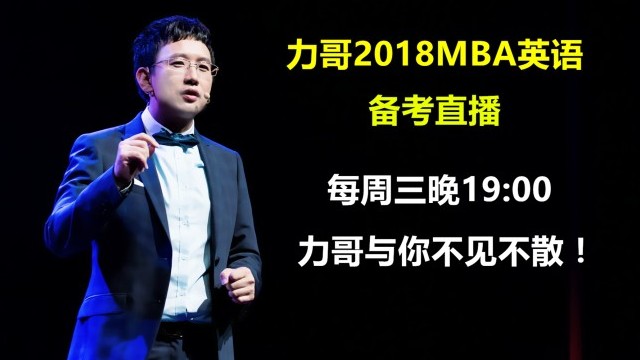黑龍江省成人本科畢業(yè)生申請(qǐng)學(xué)士學(xué)位英語模擬試題一
Part III. Reading Comprehension (40 points; 55 minutes)
Section 1
Directions: Each of the following three passages is followed by some questions. For each question there are four choices. Choose the best answer to each question. Then blacken the corresponding letter on the Answer Sheet.
Passage One
Questions 41 to 45 are based on the following passage.
Banks are ordinarily prepared to pay out all accounts; they rely on depositors not to demand payment all at the same time. If depositors should come to fear that a bank is not sound, that it cannot pay off its depositors, then that fear might cause all the depositors to appear on the same day. If they did, the bank could not pay all the accounts.
However, if they did not all appear at once, then there would always be funds to pay those who wanted their money when they wanted it. Mrs. Elsie Vaught has told us of a terrifying bank run that she experienced. One day in December of 1925 several banks failed to open in a city where Mrs. Vaught lived. The other banks anticipated a run the next day, and so the officers of the bank in which Mrs. Vaught worked as a teller had enough funds in hand to pay off as many depositors as might apply. The officers simply instructed the tellers to pay on demand. Next morning a crowd gathered in the bank and on the sidewalk outside. The length of the line convinced many that the bank could not possibly pay off everyone. People began to push and then to fight for places near the tellers’ windows. Clothing was torn and limbs were broken, but the jam continued for hours. The power of the panic atmosphere is evident in the fact that two tellers, though they knew that the bank was sound and could pay out all depositors, nevertheless withdrew the funds in their own accounts. Mrs. Vaught says that she had difficulty restraining herself from doing the same.
41. A bank run occurs when __________.
A. a bank is closed for one or more days
B. too many depositors attempt to draw out their money at one time
C. there is not enough money to pay all of its depositors at one time
D. employees of a bank take their own funds out of the bank
42. The tellers in Mrs. Vaught’s bank were told to __________.
A. explain why they could not pay out all deposits
B. pay out deposits as requested
C. assure customers that the bank was sound
D. pay out money as slowly as possible
43. The essential cause of a run on a bank is __________.
A. loss of confidence?? B. lack of sufficient funds
C. crowds of people??? D. inefficient tellers
44. Which of the following did Mrs. Vaught say?
A. She knew that the bank was not sound.
B. She feared that too many withdrawals would close the bank.
C. She was not able to draw out her money.
D. She was tempted to draw out her money.
45. According to the passage, the actions of the customers of Mrs. Vaught’s bank were influenced chiefly by the __________.
A. ease with which they could obtain their money
B. confidence demonstrated by other customers of the bank
C. confidence that Mrs. Vaught demonstrated
D. failure of several other banks to open
Passage Two
Questions 46 to 50 are based on the following passage.?
Gravity holds us so dose to the Earth's surface that nobody can jump more than a few feet into the air without the force of gravity pulling him down. It takes a powerful engine to keep an airplane up in the air. If you throw a ball upwards as hard as you can, you will notice that it travels in a curved path before it comes back to the ground. If the Earth had no gravity, the ball, instead of traveling in a curve, would move away in a straight line; in fact, it would never come back to the ground. If the Earth were to lose its pull of gravity, we should all fly off it as it spins round in space. The Earth has a strong pull, but modem rockets going out into space are able to escape from the gravity, because they travel so quickly. With the ball thrown into the air, the height reached by the ball depends upon how hard it is thrown. The greater the starting-speed, the higher the ball will go. If it could be thrown so that it traveled fast enough, the ball would escape into space and never come back. Nobody can throw a ball as fast at this, but powerful rocket engines can send spaceships away from the Earth at such a speed that the Earth's gravity is not able to pull them back. This is how we can now send rockets to the Moon.
46. Gravity holds us dose the Earth's surface, and as a result, __________.
A. we can lift ourselves no more than a few feet above the Earth
B. nobody can jump a few feet into the air
C. no one will be pulled down
D. any one of us can Jump as high as expected
47. What would happen to a ball thrown upwards if there were no gravity?
A. It would spin round in space. ? ? ? ? ? ?
B. It would fly off into space
C. It would fall into a curved path. ? ? ? ? ?
D. It would move towards the Earth.
48. The ball thrown into the air would never come back to the ground __________.
A. without such a powerful horizontal push ??
B. if it were thrown upwards as hard as you can
C. should it travel in a curved path ? ? ? ? ?
D. were it not for gravity
49. The height the ball will reach depends on __________.
A. the escape velocity???????????????????? B. the limiting velocity
C. its starting velocity???????????????????? D. its traveling speed
50. What is it that makes it possible to put a spaceship into orbit?
A. the Earth's gravity???????????????????? ?B. a strong pull
C. a powerful engine????????????????????? D. the powerful rocket engine
Passage Three
Questions 51 to 55 are based on the following passage.
Does a bee know what is going on its mind when it navigates its way to distant food sources and back to the hive, using polarized sunlight and the tiny magnet it carries as an aid? Or is the bee just a machine? (Unable to do its mathematics and dance its language in any other way to use Donald Griffin’s term) Does a bee have “awareness”, or to use a phrase I like better, can a bee think and imagine?
There is an experiment for this, or at least an observation, made long ago by Karl Von Frisch and more recently confirmed by James Gould at Princeton, biologists who wish to study such things as bees to fly from the hive to one or another special place. To do this, they begin by placing a source of sugar very close to the hive so that the bees can learn what the game is about. Then, at regular intervals, the dish or whatever is moved progressively farther and farther from the hive.
Eventually, the target is being moved 100 feet or more at a jump, very far from the hive. Sooner or later, while this process is going on, the geologists shifting the dish of sugar will find the bees are out there waiting for them precisely where the next position had been planned. This is an uncomfortable observation to make.
51. Which of the following is the best title for the passage?
A. The Bee Hive: Nature’s Candy Shop
B. Testing the Awareness of Bees
C. Navigational Techniques of Birds and Insects
D. Behaviorists Versus Biologists: A Zoological Debate
52. In the second paragraph why is Karl Von Frisch mentioned?
A. To introduce his observation on bee behavior.
B. To contrast his theories with those of James Gould.
C. To give credit to his description of the bee hive.
D. To support the argument that bees use sunlight to navigate.
53. According to the author, why was sugar used in the study?
A. To keep the bees nourished and healthy during the experiment.
B. To train the bees to travel to a particular place.
C. To reward the bees for performing the experiment correctly.
D. To ensure that the bees did not sting the scientists.
54. The result of the experiment explained in the passage seems to indicate which of the following?
A. Research using bees is too dangerous to be conducted successfully.
B. Bees are unable to navigate beyond 100 feet of their hive.
C. Scientists can teach bees to speak to people.
D. Bees are able to perform limited reasoning tasks.
55. Which of the following best describes the format of the passage?
A. a response to criticism
B. a comparison of two competing theories
C. a question followed by a possible answer
D. a position supported by scientific debate











